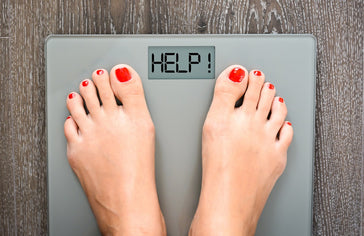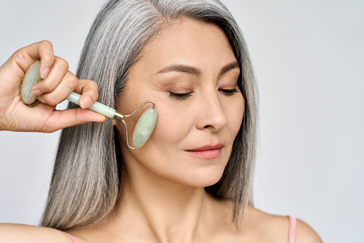W.H.O. Is Banning Non-Sugar Sweeteners
Posted by Mike Miryala on
Sumeet: I would like to start with my recent visit to the store, Walmart kind of store in Texas called H-E-B. And I was passing through an aisle which had racks and racks full of bars, you know nutrition bars, protein bars like this - think! Bar or the Quest Bar that you get in the gym as well. And I was wondering, I was looking at some of the nutritional values in these bars – which means that these taste good, I really like the taste. So I look at the nutritional value and there must be a lot of sugar in there, and there is none.
This particular bar says zero grams sugar, zero gram added sugar. But there are certain other things on the side that they mention, even the Quest has this one gram of sugar. They say there is 11 grams of sugar alcohol, Quest says there is 2 grams of erythritol. Then another bar that I have here says… there are really complex words that I cannot read.
So, question is - are these sugar alternatives / non-sugar alternatives good for us, like sugar alcohol? So I and my team at CoBionic got around and we checked that, are there benefit / non-benefit issues / harms from these kinds of nutrition bars that have sugar alcohol? And what we found was on 15th May, World Health Organization gave an advisory about risks by having these kinds of non-sugar alternatives.
So, the question for our experts here, for Mike and Sam is, what are their thoughts on these non-sugar alternatives which are of course used by a lot of people who are dealing with sugar problems, or dealing with artery problems? Are there any risks the way World Health Organization has highlighted? And before you even go there, what’s the definition of a non-sugar alternative? So, Sam you want to pick this up?
Sam: Sure yeah, so a non-sweetener, also called a sugar substitute or a sugar sweetener, these are basically items that you see, like Xylitol, they are basically sucralose, aspartame, erythritol… but they are all synthetic sugar substitutes that are, as Sumeet said, they’re zero or very low calorie but they are chemically processed to strip away all of the nutrients. So, that’s why it adds nothing to the nutrition label at all, which some may think is a positive thing. But in reality, our bodies don't understand that. That’s not we’ve ever been used to processing. We're not supposed to process chemicals. We're supposed to process whole real foods. So that’s basically the definition of a non-sweetener - a substitute for real sugar.
Sumeet: Tell me one thing Sam, when we were doing our research, we found there’s a category something like Splenda. And there is something similar called Sweet'N Low, are these really chemicals? Do they have a natural element to these? And then, there’s this category that we came across is natural sugar substitutes like stevia and monk fruit extract. So what are your thoughts on that? Is there anything that’s natural to it?
Sam: So for Splenda, no, like I said for Splenda it falls under the category of sucralose. So these are basically, it contains compounds dextrose, deoxyglucose and maltodextrin which our bodies don’t metabolize the same way and digest the same way that we would if we were digesting sugar. So because of this, they aren’t fully absorbed by the body. So as they’re passing through, and then our intestines, specifically the small intestine, the bacteria because it’s not digesting properly, and not absorbing the bacteria will start to ferment these carbohydrates and then cause the indigestion.
So then people a lot of times and as the World Health Organization came out with this article saying that it can lead to health effects. But just like the more minor ones that you see pretty initially are like gas and bloating, some people get diarrhea from these sugar alcohols. So that’s specifically to Splenda and more like the Xylitol sugar alcohols category. But then you also asked about like stevia. And stevia does come from a plant so it is considered more natural and it is a sweetener. But again, the way is processed is different. It’s still processed the same way that these chemical sweeteners are processed. So ultimately our bodies again, we’re not retaining any nutrients because it’s wiping away all the nutrients in this chemical processing.
And that’s what really distinguishes the difference between a natural sweetener such as maple syrup. You’re going to see how much sugar you’re going to intake when you have maple syrup and how many calories. But it’s naturally occurring and with maple syrup you also have other nutrients. So that helps balance it and your body is then able to absorb because there’s a lot more going on. It’s complex sugar as opposed to these synthetic sugars that have zero, nothing. So amazing good on the nutrition label, but our bodies are like, what’s happening right now?
Sumeet: So, let’s turn to Mike. Let’s make it more technical. So Mike, what are your thoughts about WHO’s advisory on alternative sugar substitutes?
Mike: So, WHO published this 390 word article on the 15th of May which shows “WHO has released new guidelines on non-sugar sweeteners (NSS), which recommends against the use of NSS to control body weight or reduce the risk of noncommunicable diseases (NCDs).”
It’s not that noncommunicable diseases are not a serious risk and it’s a general terminology. It’s not specific. But they made some serious points especially NSS long-term use and excess use of non-sugar substitutes substantially increases the risk of type 2 diabetes, cardiovascular diseases, and mortality in adults. Of course, I mean I don’t think anybody gives these to kids, non-sugar, I think it’s 21 and above. So, all these names we know already, aspartame, advantame, I mean never I heard this, neotame, saccharin I’ve heard, stevia - like Sam said stevia is more natural.
So I have an interesting story about aspartame. I am a diet coke drinker. I drink probably two or three diet cokes a day.
Sumeet: That is not heavy, you know.
Mike: Oh, really?
Sumeet: No, Elon Musk drinks up to 8 diet cokes a day.
Mike: Yeah, that’s why he’s you know 800 times net worth than me. I think they should research and you know, maybe his more brain power.
Sumeet: And Warren Buffet also drinks 6 cans of diet coke per day.
Mike: So I’m not thinking to increase the income of consuming more diet coke based on this. But I’m a heavy diet coke drinker because with regular coke, all the sugars and stuff. So when this article came up, all these years I heard all these names but I don’t research. See as a pharmacist, I should’ve researched on these things. But interestingly, aspartame was invented in 1965 and it’s a drug he thought of using it for curing ulcers as a powder. Just mix it with water and drink it, and it cures ulcers.
And I think the scientist, they just tap a fingertip and just tasted it and it tastes sweet and ultimately ended up trying this powder, they started using it as sugar alternative. How strange? And it is definitely chemical. Basically it’s a modified protein, they added some kind of methyl group to it to give the sweetness. So it is chemical. But there are no substantial studies. Basically I can say probably it’s a slow poison maybe, nobody knows what’s going on. And basically this is so very less population they use it and there is no wide range study to prove that these things are happening. And also to even prove it, probably people have to study years together, like probably 10-15 years. Also, some people, I drink diet coke but diet coke has a long list of ingredients and also I take so many supplements and I eat so much stuff, it’s not even relevant. They cannot prove the point. But it is a chemical for sure.
Sumeet: So, you’re saying that it is not good and maybe it’s okay to have but in very little amounts.
Mike: It is not good. Little amounts. Not like Elon Musk.
Sumeet: That’s actually a very good point. So, basically as Sam said right, it could start with something as simple as indigestion, like intestine is not able to absorb them because they’re kind of chemicals. But at the same time, we should not overdo it. We should keep it limited. Because if we keep overdoing it, then you know, World Health Organization article might start showing up. We definitely need to be very careful about what we take and we should focus more on having natural foods.
If you missed Samantha's and Mike's discussion on Eat The Rainbow, you can still watch the full episode here (Part 2 - Orange / Yellow) -->
https://www.facebook.com/cobionic/videos/the-cobionic-talk-show/764054365114487





